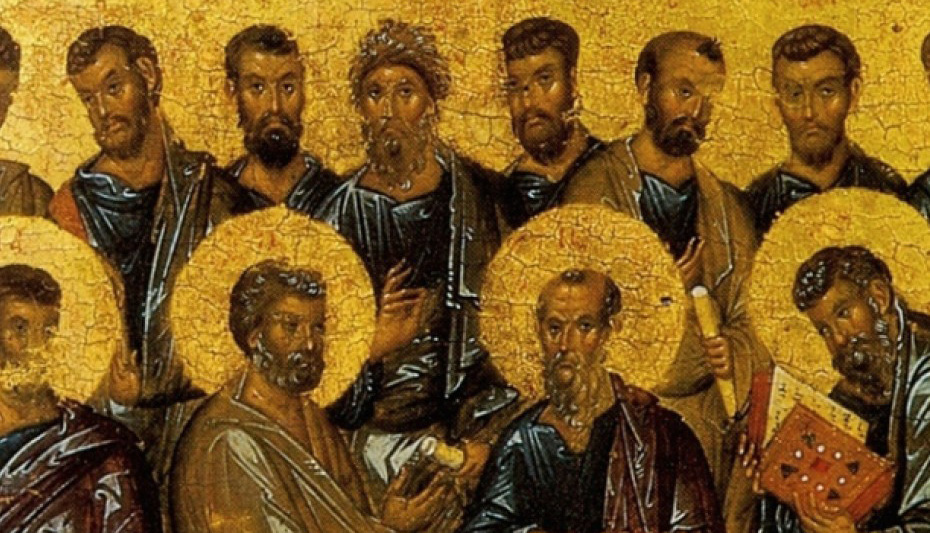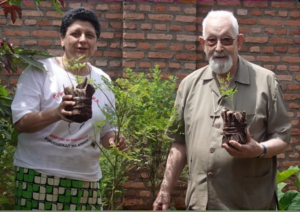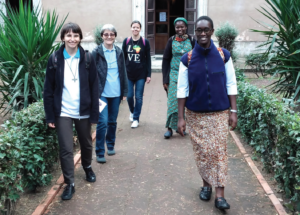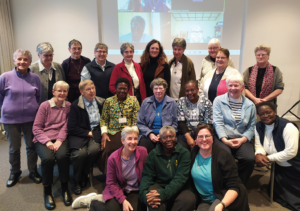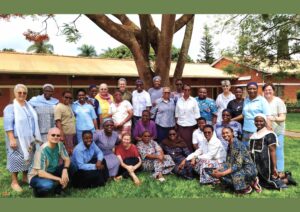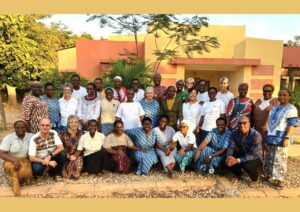The Acts of the Apostles recorded a conflict which will be solved at the “Council of Jerusalem”, under the influence of the Holy Spirit.
Starting from the “Council of the Apostles in Jerusalem” as recorded in the Acts of the Apostles, Sr. Celina Natanek offers us a biblical reflection that she hopes can inspire the process of our next General Chapter.
The experience of the transforming love of Christ transformed the small community of disciples, frightened and locked in the cenacle, into courageous witnesses, open to others, filled with the Spirit who sends them to the ends of the world. This is what the Evangelist Luke presents to us in the Acts of the Apostles (Acts 1).
This book can inspire us in our chapter context, in particular the account of the meeting, called the Council of Jerusalem (Acts 15, 1-29) between Paul, Barnabas and their companions sent by the Church of Antioch, with the Apostles and the Elders of Jerusalem. Luke places this event at the center of the Acts to emphasize its significance and the importance of the decisions made at the council.
A very important element of this council is to have opened the doors of the Church to the nations, to have “forced her to widen her tent” thus giving birth to a new community expanded by language, culture, religious practices: a new creation. Luke shows a certain pattern, in which agreement is achieved by hearing the voice of the Holy Spirit guiding the church throughout history, a pattern that can inspire us even today.
The immediate cause of the Jerusalem gathering, according to the account in the Acts of the Apostles, was a situation, called the Antiochian conflict, caused by “the newcomers” from Judea. These taught as a condition of salvation, that one must practice circumcision and observe the law of Moses. Barnabas and Paul are then sent to Jerusalem to present the problem to the Apostles and Elders.
The fundamental question of the conflict was that of the identity of the Church which understood its mission as universal. It was important to determine the extent to which Christians were bound by the regulations of the Mosaic Law. Under that aspect, the Church appeared as heir to the Judaic tradition.
On the other hand, the mission of evangelization addressed to the pagans shows that from the beginning, Christians understood that the message of Christ is not limited to the Jews, but includes all humanity. This event had become for the Church an opportunity to become more aware of the action of Christ and the consequences in theology as well as in religious practices and social life.
For us “the General Chapter is the first internal authority of the institute; it acts collegially and has legislative power; it is the expression of the participation of all the sisters in the life and mission of the institute.” (Constitutions N° 101)
Let’s now look at some aspects of the story that can inspire us to fully live our chapter.
In the Acts of the Apostles, Paul, Barnabas and their companions are the officials sent by the community of Antioch. During the trip to Jerusalem “they passed through Phenicia and Samaria telling of the conversion of the nations, which filled all the brothers with joy.”
To be sent and to have a good intention seem to be two fundamental elements. Saint Ignatius speaks of an inclination of the soul to rid itself of all its disordered affections and to seek and find the will of God. “To do God’s will,” is the motto of Mother Marie Salomé… “There are many ways of understanding and doing the will of God. The grace of Mother Salomé was to understand it in the simplest possible way, to find it everywhere, in the light of her childhood faith” » 1) (…)
“When they arrived in Jerusalem (…) they reported all that God had done with them” (Acts 15:3). However, their testimony was interrupted “by some members of the group of Pharisees who had become believers to say that the Gentiles should be circumcised and ordered to observe the law of Moses. The Apostles and the Elders met to consider this matter.” It is important to emphasize that here the opponents are well identified: members of the group, the Pharisees, who unlike Paul, remained attached to the strict observance of the Law of Moses. During the deliberations, it seems that everyone was able to express themselves.
This phase ended with Peter’s discourse (15.7-11): referring to the experience in which he recognized the action of God and presented the consequences that flowed from it.2)
Next, Paul and Barnabas testified to the signs and wonders that God had done through them among the nations. The subject of their deliberation was the work of God with them among the nations.
God was at the center of their speeches. It helps to recognize and name what is not of God, in those who had come with evil intentions or with their own agenda.
James, who then spoke, not only listened to each point of view by seeking solutions, but he is an example of understanding and interpreting the Word of God. The document containing the decisions was sent to Antioch with the delegates of the Jerusalem community. It is important to note that the expression: “The Holy Spirit and we ourselves have decided” (edoksen gar tō pneumati tō hagiō kai hēmin) which does not appear anywhere else in the New Testament reveals an astonishing self-awareness of the community. In the decisions taken collectively, they saw first the action of the Holy Spirit and not their own efforts and this made it possible to unite again the divided community.
For us, the purpose of our chapter “is to renew, under the movement of the Spirit, the fidelity of the institute to its specific mission in the Church”. (Constitutions N° 102 a). We have the experience of one or other common decision taken under the influence of the Spirit. Such a decision brings peace and communion in love. It also supposes that we are committed to implementing it, which means total involvement of each of the delegates in the decisions of the chapter.
At the end of the deliberations, a letter was written, in which it was mentioned that the decision was taken “unanimously” (homothymadon). The community was rebuilt in this way, thanks to a common reflection in obedience to the will of God. Indeed, a large part of the Council of Jerusalem was dedicated to a reflection on the wonders of God in history. The manner in which the narrative was conducted makes it clear that in the deliberations it was not so much the compromise between opposing opinions that was sought but the reflection on the events illuminated by the Scriptures.
The decisions that have had a fundamental impact on the mission of the church have not been the result of a vote but the fruit of a reflection under the movement of the Spirit with the sole concern of the community in which such procedures should be developed.
It is from this moment that the community of the Church grows to the ends of the earth. The frightened little community locked in the Cenacle after the death of Jesus is now growing in faith with others, expanding the space of its tent and allowing God to work wonders through it.
“May we experience the transforming love of the risen Lord who calls us to walk together without fear, to deepen our charism in collaboration with others and to widen our tent by giving birth to a new creation.”
(Prayer for the Chapter)
Sr Celina Natanek, Ouagadougou, Burkina Faso
1) R.P. MAZE, Centenary of Venerable Mother Marie-Salomé 1847-1947, Conferences, page 27
2) “God, who knows hearts, bore witness to them by giving them the Holy Spirit just as to us; without making any distinction between them and us, he purified their hearts by faith. Now, why do you put God to the test by placing on the necks of the disciples a yoke that our fathers and ourselves did not have the strength to bear? Yes, we believe it, it is by the grace of the Lord Jesus that we are saved, in the same way as they.”


